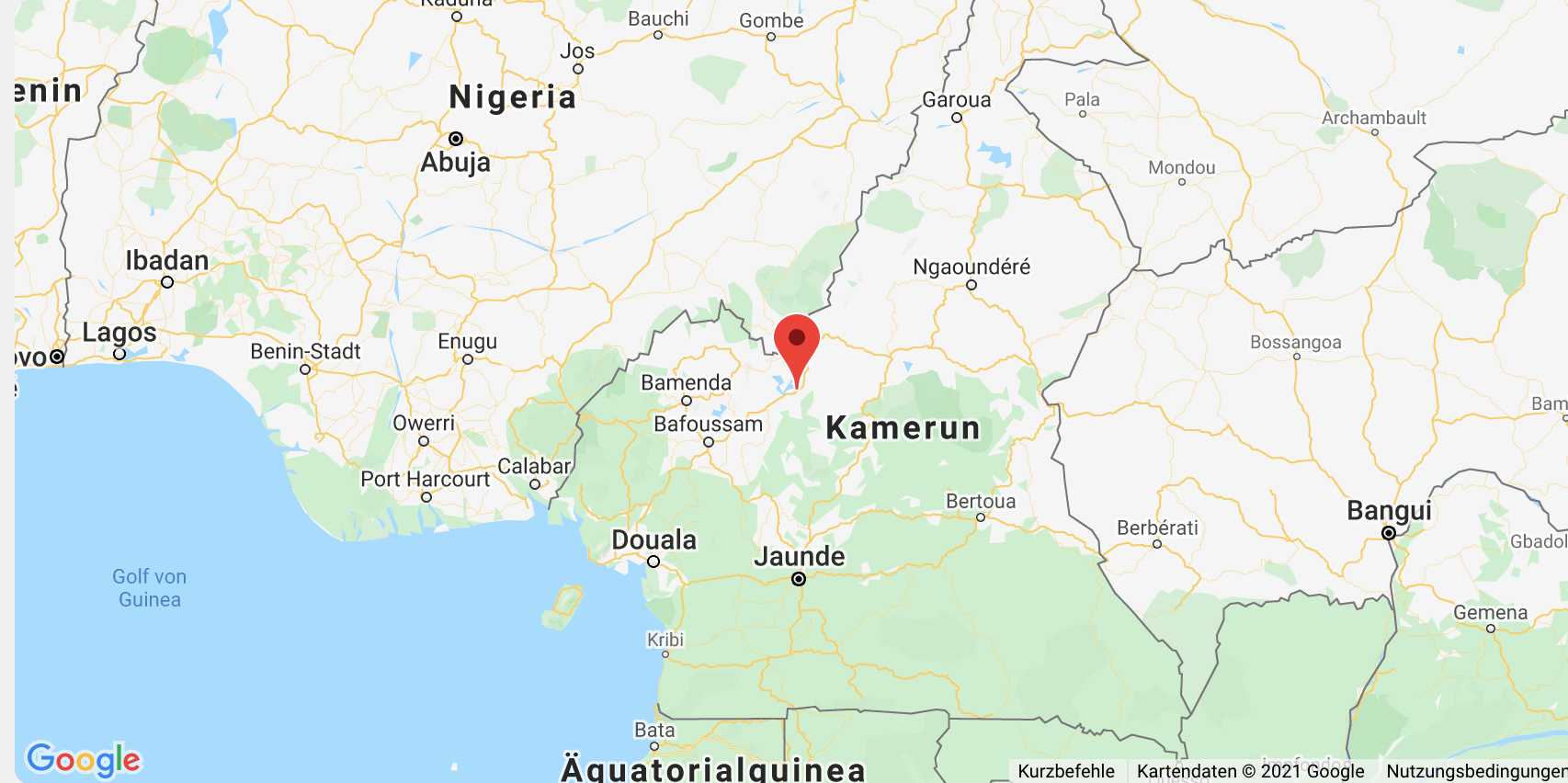Background
The countless branches of the Mapé River and the poor condition of the roads make the Bankim district in the northwest Adamawa region of Cameroon particularly difficult to access. During the rainy season, many villages in the district are not passable, while some can only be reached by water. For a great many people, this also hinders access to health facilities and services, which can be fatal, particularly in the case of emergencies. Moreover, the district health facilities are frequently in poor condition and are part of a broader health system that is not fully functioning. This is reflected in a high rate of maternal and child mortality as well as in the prevalence of neglected tropical diseases such as leprosy, Buruli ulcer and yaws. Delayed diagnosis or inadequate treatment of these diseases can result in disabilities or death.
The Project
The aim of the project is to improve the health system in the Bankim district and to enable better access to health services for the people in the project area. Throughout, special attention is being paid to mothers, children and people suffering from a disability, as these are particularly dependent on health services. There is also a special focus on the early detection and treatment of neglected tropical diseases. While these are extremely common in Bankim, they can be cured with appropriate and prompt treatment.
FAIRMED has been active in Bankim since 2010 and the project is now in its third phase. To date, it has been possible to achieve encouraging changes in healthcare provision. This includes the establishment of emergency transportation for pregnant women, promoting healthcare facilities as the best places to give birth, an ongoing reduction in maternal and newborn mortality, detecting and treating new cases of neglected tropical diseases, and increasing awareness among the general public of the measures required to combat these diseases.
Objectives and Activities
The overarching aim of the project is to improve the health system in the Bankim district and to enable better access to healthcare services for the people of the project area. To this end, the project is pursuing three specific aims that are being realised through the following activities, among others:
Improvemnets in public access to health services
FAIRMED ensures that neglected tropical diseases (NTDs) are treated appropriately at the various healthcare facilities.
FAIRMED ensures that the necessary medication is available for the timely treatment of NTDs.
Increasing the awareness of NTDs among the general public, enabling the prompt identification of diseases and ensuring that people are informed about treatment options.
Establishment and operation of an emergency transport system, e.g. through the provision of boats and ambulances.
Training of volunteer midwives.
Organisation of screening programs for children in schools. Here, health workers visit the schools and examine each child individually, facilitating the prompt and early identification of neglected tropical diseases.
Support for local authorities in health system administration
Nurturing the management capacities of the respective responsible persons in the district health authorities.
Financial and technical support on health issues for the local administration.
Reinforcing cooperation between local health stakeholders
Involved stakeholders are encouraged to document all of their activities. This increases transparency and simplifies communication.
Ascertainment of training needs for involved stakeholders and organisation of corresponding training courses.
Establishment of regular consultation meetings and support in the development of joint strategies.
Sustainability and Monitoring
All FAIRMED projects are implemented in cooperation with the local official agencies and with the inclusion of the population on the ground. The regional FAIRMED country offices are staffed exclusively by local employees. With this approach, and aided by consistent monitoring, problems can be identified in a timely manner, causes can be analysed, and methods and objectives can be adapted where necessary. The direct integration of health ministers and partner organisations also ensures that projects can be transferred at a later point and continued without the support of FAIRMED.
Beneficiaries and Budget
Direct beneficiaries of the project are all those that make use of the health system, in particular pregnant women, newborns and people with neglected tropical diseases and disabilities. In addition, local authorities and health personnel, as well as the entire population of the district (around 11,000 people) are all able to benefit from an improved health system. The total costs for the third phase of the project (2018 to 2021) amount to CHF 854,000.
No one should suffer or die from a curable disease
Mou Ferdinand • Country Coordinator Cameroon
Support FAIRMED